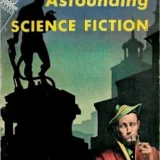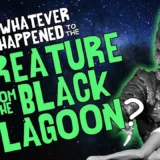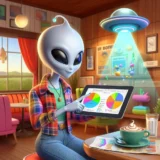
Until I read something on teh interwebz, I wasn’t aware of Mark Millar’s (and Frank Quitely’s) Jupiter’s Legacy graphic novel/comic book /bande dessinée series (pick your adjective), or its Netflix TV adaptation. From the description I read, it sounded somewhat similar to Amazon’s series The Boys (2019), based on a comic/etc. by Garth Ennis and Darick Robertson. The Boys TV series (I’ve not read the comic) was about a group of non-powered people in total opposition to the Vought Corporation’s little group (“The Seven”) of superpowered “champions” who, like Superman, fought for the rights of civilization and non-powered citizens. You can read my 2019 review here: NEW TV SHOWS: THE BOYS and PENNYWORTH – Amazing Stories. As you’ve probably figured out by now, I’m a pretty big fan of superhero comics, though my reading is years out of date. And once again, I’ve not read the comic that served as the impetus/blueprint for this series (and full disclosure: as of now, I’ve not seen all of the episodes of this, the first season; I’m only talking about the first four episodes, or half the season).
Warning: this series jumps back and forth between the late 1920s (1929 in particular) and approximately current time, so be aware or be confused. (Incidentally, Netflix has done a superb job of making the TV people resemble the comic characters as drawn by Frank Quitely.) In the opening scene, we’re introduced to Utopia’s pre-teen children (Brandon and Chloe) and Brandon’s friend Barry as well as Utopia himself (Josh Duhamel), and we learn that Utopia holds his children to the same impossibly high standard as he holds himself and the other superheroes.

We also go back to 1929, where Sheldon Sampson—not yet Utopia or superpowered—is the scion of Chester Sampson (Richard Blackburn); he works in the family’s steel mill and interacts with all the employees, especially Willie Small (Tyrone Benskin) and his son Fitz (Mike Wade). Sampson Steel Mills have built, according to Chester, many of the big skyscrapers in town; they’re even planning to expand and break ground on three new mills. Sheldon’s older brother Walter (Ben Daniels), who is the company’s bookkeeper says that things are too good right now, and advises against doing the expansion now. His cautions are poo-pooed by both Chester and Sheldon, and “the board has approved it,” which seems to be the closing argument.
Of course, this is all prelude to what we know must happen—most people know what happened in 1929—the stock market crashed, because most people bought things (especially stocks) they couldn’t afford; banks extended credit on the slimmest of margins; and thousands of banks, companies and people went bankrupt. The skies in major cities were full of falling bodies, as once-wealthy businessmen saw a life of failure and ruin—and possibly jail—ahead of them, and jumped out of high windows. Minor spoiler: Chester Sampson joined them, jumping from the top of the Sampson Steel building in front of his son Sheldon. One of the local papers later investigated Sampson Steel and published a story—complete with squashed-body photo on the front page—about how Chester had raided the employees’ pension fund to jumpstart the expansion. Finding that the newspaper story is true—after all, Sheldon idolized Chester—begins Sheldon’s mental troubles.
And in the modern world, a super-villain called Blackstar (Tyler Mane), a bad guy with an antimatter heart, has apparently escaped from Maximum Security. He’s in a fight with The Utopian and his wife Lady Liberty (Leslie Bibb), as well as Brainwave (Sheldon’s brother Walter). When the fight escalates, a group of younger Union members, like Paragon (Sheldon’s son Brandon, played by Andrew Horton), as well as several of Brandon’s super friends (no, not those Super Friends!). Blackstar is about to go nuclear with his antimatter heart, probably killing the Utopian and half the state, when Brandon makes a desperation move and kills Blackstar. Which is totally against the Union’s Code (codified by Sheldon), which says “no killing under any circumstances, no exceptions.”

One of the fun things about this is that unlike in The Boys, there’s no external group fighting The Union; all the main conflict is internal, either within The Union or within The Utopian’s family. (There may be further fights with Blackstar—I won’t tell you why or how—but not within the first four episodes). In The Boys, all of the group of superheroes (called The Seven) are run by, and paid by, the Vought Corporation. They’re not responsible to anyone else, and because of collateral damage, an underground rebel group of non-superheroes has arisen in opposition.
In this series, the public adores them, but The Utopian’s strict rules are driving his son and daughter away and make no sense both to lots of members of the public—especially law enforcement, who see no sense in paying to house and feed super-powered murderers as well as the non-powered kind—and to the younger super-powered Union members. I feel some sympathy to their viewpoint, which for me is that in the heat of battle, you can’t always capture the bad guy; sometimes all you can do is hit them with your best shot—which occasionally is fatal!
Another thing about this series is that the younger people are delineated quite well, especially Chloe (Elena Kampouris) and Brandon; he’s trying to live up to his father’s example and desires, but she’s rebelling against a controlling father who’s never been “there” for his children, and who sets impossible standards.
Also, we still don’t know in what way the original superheroes (The Union) got their superpowers; Sheldon is receiving visits from his dead father, as well as mystical visions of a windmill and what appears to be an island wreathed in fog, much like King Kong’s “Skull Island” (but without the skull; instead we see several jagged peaks). It’s intriguing, and I’m looking forward to seeing if they meet someone like the wizard Shazam (if you recall, the “Big Red Cheese” changes from Billy Batson to the superhero by saying the wizard’s name). The younger people inherit their powers, though not immediately, it seems. Some powers don’t develop till well after puberty. And like Marvel’s mutants, the powers are variable, depending on the person, ranging from superstrength, to earthquake/tremor powers, to “flaming fists” to invisibility and beyond.
I’m enjoying this series a lot, and have great hopes that the final four episodes won’t disappoint and will fill in a lot of blanks. In some ways I think it’s a realistic view of how superpowers could actually work in the modern world—of course, the whole idea of superpowers is silly; but here we engage in a “willing suspension of disbelief.” I don’t know if I want a second series—I understand Millar’s got a whole batch of sequels for the comic—but maybe I’ll have a better idea when I’m done with the first.
I’ll listen to any comment you have on this column. If you want to, you can comment here, or on Facebook, or even by email (stevefah at hotmail dot com). I’ll take all comments, good or bad, positive or negative, even if I don’t agree with them. (Just keep it polite, okay?) My opinion is, as always, my own, and doesn’t necessarily reflect the views of Amazing Stories or its owner, editor, publisher or other columnists. See you next time!
Steve has been an active fan since the 1970s, when he founded the Palouse Empire Science Fiction Association and the more-or-less late MosCon in Pullman, WA and Moscow, ID, though he started reading SF/F in the early-to-mid 1950s, when he was just a sprat. He moved to Canada in 1985 and quickly became involved with Canadian cons, including ConText (’89 and ’81) and VCON. He’s published a couple of books and a number of short stories, and has collaborated with his two-time Aurora-winning wife Lynne Taylor Fahnestalk on a number of art projects. As of this writing he’s the proofreader for R. Graeme Cameron’s Polar Borealis and Polar Starlight publications. He’s been writing for Amazing Stories off and on since the early 1980s. His column can be found on Amazing Stories most Fridays.








